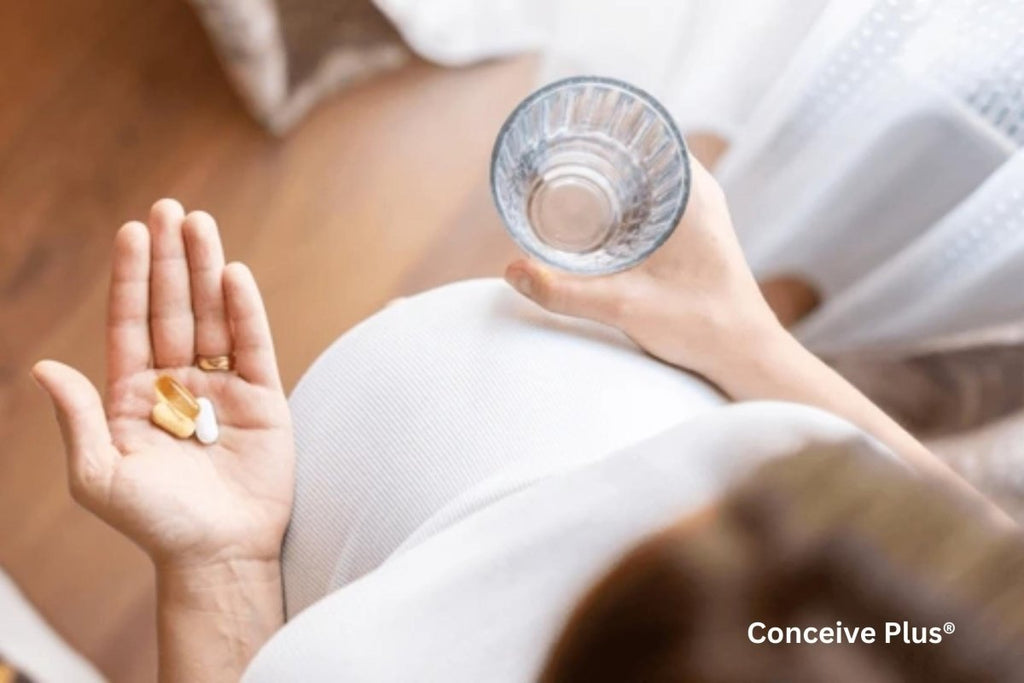Female Hormone Support: Simple Steps for Improved Fertility

Hormones regulate many different important functions in a woman's body. They affect mood, energy, fertility health, the chances of pregnancy, and the ability to stay healthy during pregnancy. A natural balance of body hormones is essential, especially for women planning to conceive [1].
However, most women don't know how to improve their hormonal balance and support fertility health. In this article, we will discuss the importance of hormonal balance for women and the options for hormone support, such as inositol supplements.
Why is Hormone Support Needed for Women?
Hormones are like messengers that control many processes in the body. For women, hormones like estrogen, progesterone, and luteinizing hormone (LH) are critical to the reproductive system [2]. These hormones make ovulation — release of the egg from the ovaries — happen, aid in ovulation tracking, prepare the uterus for pregnancy, and support the pregnancy until the delivery of the baby.
Studies show that women are at a high risk of hormonal imbalance [3]. Stress, unhealthy eating, lack of exercise, and conditions like polycystic ovary syndrome (PCOS) or thyroid problems are among the primary causes of hormonal imbalance in women.
When hormones are out of balance, women experience irregular periods, low energy, mood swings, and struggle to get pregnant. Hormonal imbalance can also lead to pregnancy complications and increase the risk of miscarriages [4]. This is why, for women trying to get pregnant, hormonal support can help the body work correctly and improve the chances of conception.

Options for Hormone Support
There are many simple and effective ways to support your hormones and achieve a natural hormonal balance. The options include lifestyle changes, supplements, and medical treatments.
1. Lifestyle Changes
Making small changes in daily habits can significantly improve hormonal balance. Here are some effective lifestyle modifications to support healthy hormonal levels:
- Eat a Balanced Diet: Studies show that a balanced diet rich in nutrients can improve hormonal balance and prevent complications [5]. You can get plenty of healthy nutrients from fruits, vegetables, whole grains, and lean proteins. On the other hand, avoid too much sugar, processed foods, and unhealthy fats, as they can disrupt hormone production and release.
- Exercise Regularly: Physical activity helps keep a healthy weight, which is important for hormone health. Stress is another factor that can disturb hormonal balance and reports show the beneficial influence of exercise on relieving stress [6].
2. Nutritional Supplements
Sometimes, even a balanced diet is not enough to fulfill the nutritional requirements of the body. In such cases, doctors recommend hormone supplement to fill in the gaps in a balanced diet. Here are some supplements that support hormone health:
- Inositol: Scientific evidence shows that the inositol supplement is helpful for women with PCOS [7]. Inositol for hormone balance improves insulin sensitivity and supports regular ovulation. Many women find inositol supplements helpful for regulating periods and improving fertility health.
- Vitamin D: Low vitamin D levels can lead to hormonal fluctuations and fertility problems. Taking vitamin D supplements can help balance hormones and improve overall health.
- Omega-3 Fatty Acids: Omega-3 fatty acids have antioxidant properties, help the body produce hormones, and also support pregnancy. It is naturally found in fish oil, and you can take supplements for it.
3. Medical Treatments
Medical treatment is essential when lifestyle modifications and supplements fail to improve hormonal balance, and a person is at risk of complications. Here are some effective medical treatments for hormonal support:
- Hormone Replacement Therapy (HR): In most cases, women experience a deficiency of a specific hormone instead of overall low levels of all the hormones. In such cases, doctors recommend hormone replacement therapy or HRT, which is highly effective.
- Fertility Medications: Medicines like Clomid or letrozole support the release of eggs from the ovaries. Such treatments can increase the chances of conception by improving fertility hormones.
Conclusion
Hormonal balance is essential for women’s fertility journey and pregnancy. Women are at a high risk of hormonal fluctuation during pregnancy. Simple lifestyle modifications like eating healthy, exercising, and reducing stress can improve hormone health.
Supplements like inositol and vitamin D are also an effective option for hormone support. Evidence shows that these supplements can improve hormonal balance and conditions like PCOS. When the symptoms of hormonal imbalance are severe, make sure to consult a healthcare specialist for an accurate diagnosis of the underlying issue and get a treatment plan.
Resources Used
- Magon, N., & Kumar, P. (2012). Hormones in pregnancy. Nigerian Medical Journal, 53(4), 179. https://doi.org/10.4103/0300-1652.107549
- Professional, C. C. M. (2024o, November 7). Female Reproductive System. Cleveland Clinic. https://my.clevelandclinic.org/health/articles/9118-female-reproductive-system
- Segarra, I., Menárguez, M., & Roqué, M. V. (2023). Women’s health, hormonal balance, and personal autonomy. Frontiers in Medicine, 10. https://doi.org/10.3389/fmed.2023.1167504
- Pluchino, N., Drakopoulos, P., Wenger, J. M., Petignat, P., Streuli, I., & Genazzani, A. R. (2014). Hormonal causes of recurrent pregnancy loss (RPL). HORMONES, 13(3), 314–322. https://doi.org/10.14310/horm.2002.1505
- Nutrients. (n.d.). https://www.mdpi.com/journal/nutrients/special_issues/diet_hormones
- Exercise: A healthy stress reliever. (2014, January 20). https://www.apa.org. https://www.apa.org/news/press/releases/stress/2013/exercise
- Kalra, B., Kalra, S., & Sharma, J. B. (2016c). The inositols and polycystic ovary syndrome. Indian Journal of Endocrinology and Metabolism, 20(5), 720. https://doi.org/10.4103/2230-8210.189231













